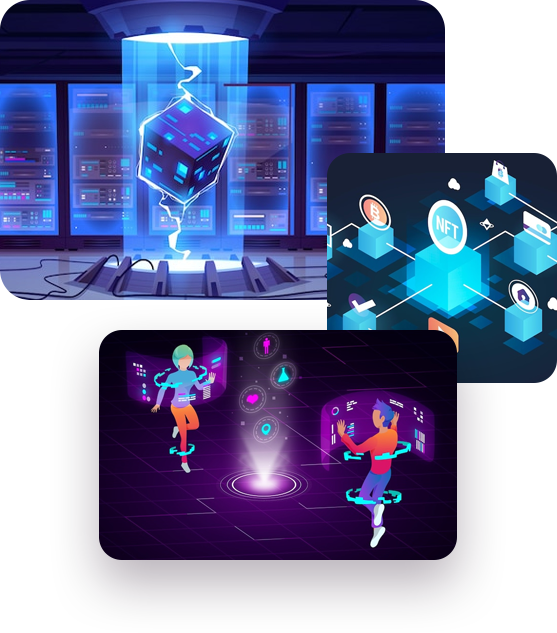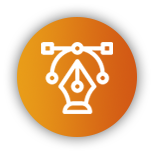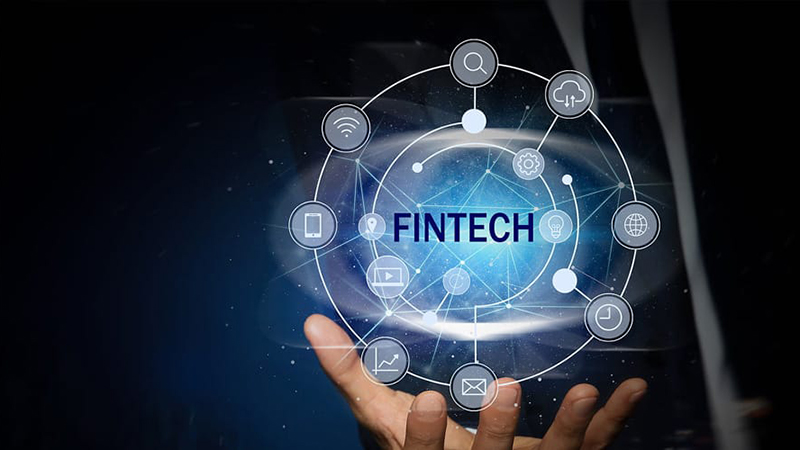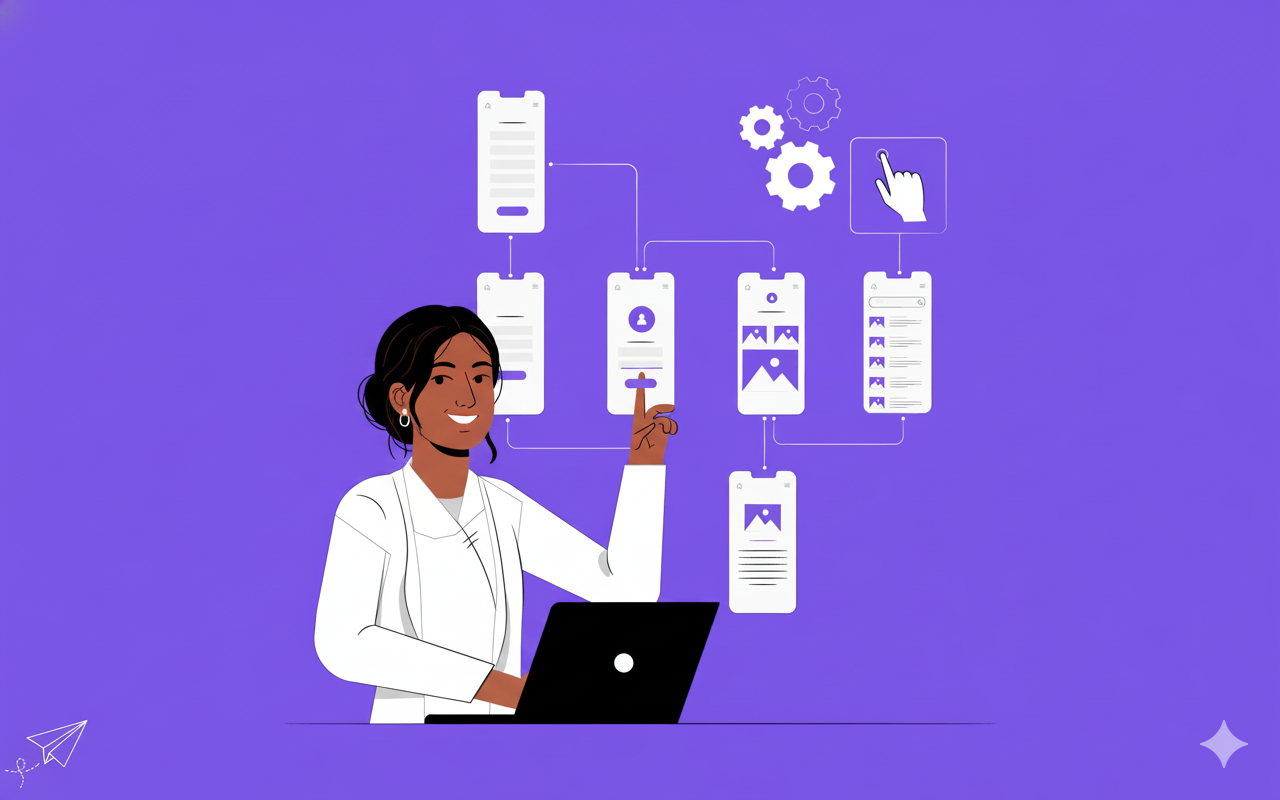From Vision to Reality
Empowering modern needs with cutting-edge digital experiences.

Upgrade your web interactions and give the users an immersive experience with scalable, secure, and intuitive Web3-powered applications. By utilizing the advantages of AI and Web3, we develop and build technology solutions to ease user interaction. Internet surfing becomes more personalized and user data can be stored and shared securely.
We have exceeded expectations with an awesome track record.
Super happy clients and their feedback have helped us thrive.
Our team members work together to achieve business-specific goals.
We give our clients exactly what they need and that’s why they love us.

We create integrated DAO solutions to introduce democracy into organizations and overcome critical challenges that they face.

Step into the world of AI and metaverse with our robust Web3 browsers powered by blockchain technology and surf over the decentralized web with utmost privacy.

Goal-oriented and turn-key Web3 decentralized exchange (DEX) platform development solutions to facilitate easy transactions in the crypto market.

Experience an immersive and close-to-reality experience with our innovative and Web3-based games that are hosted on blockchain and are impossible to hack.

Enterprise-grade Defi development solutions like Defi exchange apps, wallets, etc. We offer full-cycle development services, from conceptualization to architecture design.

We leverage the power of Web3 to build scalable and secure smart contracts that are tailored perfectly to our clients’ versatile requirements.

Secure and feature-packed NFT marketplace development by our NFT developers to make the trading experience of users smooth and safe with multiple layers of security.

Lead your way toward a decentralized space with powerful dApps developed by our established blockchain development agency in the United States.

We eliminate the gap between the real and digital world by embracing the metaverse and experiencing an impeccable digital transformation.


























I recently had the pleasure of working with Webgen Technologies USA for a Web3 development project, and I must admit that the quality of the work exceeded my expectations. Their extensive knowledge and expertise in Blockchain, smart contracts, and Metaverse were evident in their project. I am also impressed by their attentive and responsive team members who ensured to keep me in the loop and track the project’s progress. I would highly recommend their services to those willing to integrate a Web3 platform into their digital landscape.

Webgen Technologies USA has exceeded all of our expectations with its metaverse development service. Their team of experts brought our vision to life with their cutting-edge technology and attention to detail. We highly recommend their services to anyone looking to take their metaverse experience to the next level.

The web3 development service by Webgen Technologies USA has been a game changer for our business. Their expertise and attention to detail have helped us streamline our processes and take advantage of the latest technologies. Their commitment to delivering high-quality results has made them a valuable partner, and we look forward to continuing our work with them in the future.

The blockchain development service provided by the team at Webgen Technologies USA has been instrumental in transforming our business. Their deep understanding of blockchain technology and ability to provide innovative solutions has allowed us to stay ahead of the competition. We highly recommend their services to any company looking to leverage the power of blockchain technology.

Every big startup started small. And, yours can too. You don’t need millions or a team of genius developers. Having a clear concept and a proper tactical approach are the only things needed for success. This manual will guide you through the entire process of turning your idea into a reality, whether it’s an AI-assisted […]

The healthcare industry is undergoing a monumental shift driven by digital innovation. From remote monitoring systems to AI-powered diagnostics, technology is revolutionizing how patients access care and how medical professionals deliver it. The pandemic accelerated this transformation, pushing hospitals, clinics, and pharmaceutical companies toward digital-first solutions that enhance efficiency and patient satisfaction. One of the […]

The banking industry is undergoing a profound transformation driven by artificial intelligence (AI) and automation. With the rapid shift toward digital-first experiences, traditional banking models are being redefined by conversational AI chatbots that deliver instant, intelligent, and personalized customer interactions. As consumers demand faster resolutions and 24/7 availability, financial institutions are turning to AI-powered chatbots […]
Web 3.0, also referred to as Web3, is the third generation of the World Wide Web. This Semantic Web is the extended version of the World Wide Web meant to make the internet more safe and machine-readable. In Web3, we can experience an intelligent and open internet that utilizes the power of Machine Learning and Artificial intelligence to interpret content contextually. This self-sufficient third generation of the web is going to transform the internet browsing experience and serve as a “global brain” capable of solving users’ queries in a way a human does.
Following is the list of features that Web3.0 offers:
We, as the best web3 platform development company in Olathe, Kansas, in the USA have been leveraging the potential of Web3.0 by holding a strong grip over its core such as AI, Machine learning, metaverse, and blockchain.
Web 3.0 is the future of the internet and we can already see that modern web applications have gained prominence and ubiquity due to integration on web3 technology like blockchain, metaverse, and artificial intelligence. Let’s take a look at some of the best examples of Web 3.0.
Apple’s Siri – Voice recognition is an integral part of Web 3.0 and Siri is built using advanced voice recognition software. Users no longer need their hands or fingers to access the internet, make calls, or communicate. Siri sets an ideal example of Web 3.0 where machines interact with each other to provide better search results to users.
Wolfram Alpha – It is an intelligence platform that enables users, especially students, and professionals, to get accurate answers and compute solutions. Wolfram Alpha has streamlined the process of information gathering for the end users. As you type a question, it will interpret and yield results pertinent and specific to the context so that it becomes easy for you to comprehend.
VR – Virtual Reality (VR) is a technology used by Web3 developers in Olathe, Kansas in the USA that enables a user to feel his or her physical presence in a replicated and imaginary environment. This computed technology is used for creating virtual realities through sensory inputs which can be anything from touch and sight to hearing.
AR – Augmented Reality is another breakthrough advancement powered by Web 3.0 that augments a digital object in a real-world environment. The combination of computer-generated content with the real-world user with the use of visual elements and sensory stimulants enhances the user experience.
With the emergence of Web 3.0, blockchain has gained a lot of momentum after its significance in the digital domain has been uncovered. More and more businesses are resorting to this high-end decentralized and secure ledger system to streamline their business workflow and facilitate transparency in transactions. If you are one of them, then here is a checklist for you to select the ideal web3 development company in Olathe, Kansas, in the USA that integrates blockchain into their solutions.
Technical Expertise – The first thing you need to check is whether the blockchain developers of the company know basic programming languages such as Java, Solidity, Node.JS, Python, C, and C++. The developers must know the Syntax of languages and have expertise in multithreading implementation in Apps.
Previous Portfolio – A company with many years of experience must have an excellent portfolio to showcase. Also, the previous work done for their clients will help you to understand their developers’ skills and quality of service.
Online Reviews and testimonials – Testimonials and the honest feedback of previous clients help a potential client in making a final decision. You can go through the client feedback posted on Google, various review sites, social media channels, etc to have a precise picture of the company’s reputation in the industry.
Encryption and security concern – The primary purpose of integrating blockchain into applications is tight security. So, when you hire web3 developers in Olathe, Kansas in the USA you must make sure that your data is end-to-end encrypted and is protected from any kind of cyber threats.
Post-development Support – No matter what is project scale is, maintenance service should always be included in their service. Although the blockchain system is self-sustaining, the apps and smart contracts into which it is integrated are not. Hence, you need someone for app maintenance and also to back you up if it encounters any error.
Easy to communicate – Apart from all of the above points another important thing to consider while hiring a blockchain development agency is the ease of communication. The team should always be available in whichever communication mode you are comfortable with, such as email, skype, or zoom call, to answer your queries and clear your doubts during the development process.
Businesses and organizations have been catching up with the wave of Web3 because it brings vast opportunities for growth and development. In various industry verticals from banking to insurance, healthcare to logistics, and gaming to automotive, Web3 has brought revolutionary changes.
The ways it impacts businesses of all types are as follows.
Hence, these are key benefits of Web3 brings to businesses and why you should consider hiring a Web3 app development company in the United States now to leg up on their rivalries.
Web3 is a next-generation internet that offers users extraordinary benefits through the amalgamation of new-age technologies such as decentralized ledgers, Metaverse, Artificial intelligence, etc. Web3 browsers make dApps available by leveraging cryptography and wiping out the need for a centralized authority.
Web3 is meant to transform the online experience of searchers or internet users. By upgrading from the standard functions of a web browser, Web 3.0 has allowed users to interact with content or social media channels and also protect their data ownership. Democracy is another integral aspect of Web3 browsers. The apps are controlled by Decentralized Autonomous Organizations (DAOs), which implies that all the decisions are taken by users who possess token ownership.
The evolution of the web from 2.0 to 3.0 has been significant and hence, the difference is also felt immensely. The demand for a web3 developer for hire is quite evident because businesses are in dire need of a fair and transparent network.
In Web 2.0, computers access information from a fixed location or web address (in the form of HTTP), that is controlled by a single server. However, in Web 3.0, information is decentralized and hence can be moved easily in multiple locations with distributed ownership.
Web 1.0 was all about static and read-only web pages which ruled the phase between the 1900s to 2000s. After the 2000s, came the era of Web 2.0 which saw the integration of interactive and information-centric web applications and services. Social networking platforms, video streaming apps, blog postings, etc. are all examples of Web 2.0.
Then came Web 3.0 which welcomed a user-centric, private, secure, and decentralized web version. The inception of Web3 removed the possibilities of data concentration in the hands of tech giants. Users no more need to be afraid of data breaches or identity theft while using Web 3.0.
Webgen Technologies USA is a trusted blockchain development company with years of experience and a team of extremely talented IT professionals. Our agile approach to building web3 applications and games integrating AI and metaverse has made us one of the best agencies in the United States. Our technology solutions add business value by helping companies navigate through their digital journey.
The Web3 development platforms have great security and transparency and hence, you should not miss its potential to build dynamic and interactive applications for your customers.
There is a wide array of web3 solutions offered by our web3 development agency in Olathe, Kansas in the USA to help businesses meet their goals and get maximum ROI.
The best explanation for Web3 and its future in the internet world revolves around its potential and scope in new-age applications. Undoubtedly, new standards have been set for the new Web3-powered internet and the metaverse has made the virtual world seamlessly function in parallel with the real world. It would open up endless opportunities for businesses and individuals in the future.
Whether it’s social media, gaming apps, or online shopping, users now can experience 3D visuals and objects. Most importantly, Web 3.0 assures users regarding information security and data safety.
Web3 can be seamlessly integrated into traditional web browsers or web 2.0 applications. By utilizing the power of AI, blockchain, and machine learning, Web3 apps are made user-centric and our web3 developers in Olathe, Kansas in the USA are well-versed in these cutting-edge technologies.
Web3 development companies essentially use frameworks that support blockchain platforms, Ethereum being the most popular one. Other platforms that are used by our developers to quickly develop and deploy blockchain-based dApps are Quicknode, Alchemy, and Moralis.
The other tools that are mostly used for Web 3.0 are
Metamask – Metamask is a blockchain wallet that is an extension of Ethereum-based Web3 dApps, NFT platforms, and Defi exchange apps.
Chainstack – An user-friendly Web3 tool used by aspiring professionals to provide seamless web3 infrastructure for next-gen applications.
Etherspot – This software development kit serves as an efficient framework for blockchain apps compatible with EVM chains.
Foundry – Being based on the programming language, Rust, this web3 tool ensures better flexibility in Ethereum-based development environments.
Watchdata – Watchdata facilitates easy integration of real-time data and transformation of unstructured data into meaningful information.
As a web3 development company in the United States, we ensure that our blockchain developers are well-versed in the following programming languages.
Web 3.0, the latest generation of the World Wide Web, is a decentralized version of the web. Web 3.0 allows users to enjoy complete control and ownership over their data and identity. The private key cryptographic nature of the Web 3.0 provides access to applications that do not require permission from a centralized intermediary.
Web3 aims to lessen monopoly power and make the internet a safe and democratic place for everyone. To better understand the functionality and inner workings of this decentralized internet, let’s get into an in-depth study of the Web3 development stack.
The Web3 stack is distinguished from the earlier web version stack because of its unique combination of tools and trending technologies. It has substituted the centralized database with a decentralized blockchain network. The transition from Web 2.0 to Web 3.0 is revolutionary. The radical shift from client-server data sharing to a decentralized web has led to a progressive Web 3 environment.
The Web3 Stack is layered into 5 parts and any developer keen on building applications based on Web3 infrastructure should be aware of every layer of the tech stack.
Layer 0
It is the infrastructure layer that focuses on blockchain architecture and includes the following components.
Mining as a Service (MaaS) – The decentralized power of blockchain technology provides immense opportunities for IT companies to provide MaaS to industry stakeholders who are seeking ways to incorporate Web3 technology into their business strategies.
Network – Web 3.0 networks do not have any central point of control over their network. The network is distributed, thus providing every user with their desired privacy.
Virtualization – Virtual resources such as OS, network, desktop, server, etc. are created in this stage which simplifies and reduces scalable workloads. Each layer is interconnected to the other and operates at the system and server levels.
Computing – Web3 powered by blockchain technology is a fast problem solved because multiple computers in the network work together to break down complications in a problem, distributed them throughout the network, and work together to solve it in less time.
Nodes – Thousands of nodes come together to make the decentralized network of Web3. These nodes are the interaction points where each transaction is tracked and updated.
Tokens – Token creation is an integral part of the Web3 infrastructure because tokens are considered digital assets that can be traded and exchanged on the Web3-powered NFT marketplace.
Storage – The decentralized storage system of the data on Web3 makes it a more secure place for users compared to cloud solutions.
Layer 1 – Protocol
The protocol layer comprises protocol, consensus algorithms, and virtual machines which are the following.
Side Chains – Sidechain helps developers create dApps by moving from one chain to another without affecting the main chain. They are independent chains built from different networks.
Participation requirements – This segment of the Web3 stack involves the selection of blockchain infrastructure – Public or private. The private chain is the permissioned blockchain while the public chain is permissionless.
Virtual machine – The virtual machines that are used by different blockchain networks – – Ethereum 1.0, Ethereum virtual machine (EVM), Solana, Ethereum 2.0, Kadena, Corda, etc.
Layer 2 – Utilities
The components of Layer 2 are.
Multi-signature – Unique sign-up feature before proceeding with online transactions to ensure security. You also have the option to choose the total number of signatures or requirements.
Oracle – Oracles are used for developing smart contracts in blockchain. Oracle collects information from the real-world database and uses this information to build smart contracts.
Wallet – Wallets are programs that aid in the easy tracking and sharing of digital assets, or cryptocurrencies such as Bitcoin, Lite coin, Ethereum, etc.
Digital Assets – In the web3 stack, a digital asset can be anything from cryptocurrencies to images, multimedia to audio, and a lot more.
Smart contracts – Virtual agreements or contracts with pre-written rules that support and automate the process of the transaction once the conditions are executed by both parties. Smart contract development eliminates the need for supervising authority to enforce an agreement between parties.
Digital Identity – As Web3 connects all the users online, everyone must have one or multiple digital identities which would protect their privacy and secure their information.
Distributed file storage – The decentralized and distributed location on the server where data is stored and accessed easily after authentication.
Layer 3 – Services
The services layer is the technology layer comprising all the necessary tools for the creation and maintenance of decentralized applications. The layer includes –
Data feeds – Data feeds in the Web 3 stack allow receiving of updated information from authenticated data sources.
Off-chain computing – This guarantees the integrity and privacy of the values and makes sure that the value can neither be changed nor deleted.
Governance – The development of a Decentralized Autonomous Organization (DAO) eliminates human governance and runs on smart contracts by using blockchain technology.
State channels – These are paths that facilitate transactions between participants by signing up using their private keys.
Layer 4 – Applications layer
The applications that complete the Web3 stack are:
dApp Browser – This browser is different from current browsers like Chrome and Firefox because it allows the browsing of decentralized applications. One can add plug-ins like Metamas to existing or regular browsers.
Application Hosting – It is required to host a decentralized app on a distributed network that makes the application accessible and risk-free from any device.
Decentralized Application – It is considered the most integral part of the Web3 stack because the entire Web3 ecosystem works on the decentralized applications that are created using blockchain technology.
Some of the Best Web3 Development Environments
Embarking on the Web3 journey requires adequate knowledge from the developers’ end regarding the development environments. Here are 3 popular Ethereum development environments.
Hardhat – It is your one-stop solution for writing and developing smart contracts and debugging errors in the codes. It is a Javascript software environment that can be easily augmented with scalable plugins to help developers customize their blockchain environments.
Truffle – Truffle is also an EVM-compatible software development environment that is useful in writing smart contracts and equipped with features like code linking, contract deployment and compilation, and binary management.
Embark – This environment is used for the development and deployment of decentralized applications that are built on Ethereum, and have decentralized networks like Swarm for data storage.
Remix – This is an open-source software development used for developing Web3 applications using Solidity. It is available both as a desktop browser and as an application that can run and be accessed locally from any device.
Brownie – This is a Python-based framework that is used for EVM development. It offers a wide range of tools that Web3 developers can use for testing and deploying decentralized applications.
Web 3.0 is an evolving ecosystem that is continuously introducing new and cutting-edge tools and technologies. So Web3 developers might find it daunting at times with so many adaptations. However, one thing is certain these 4 layers are the foundation of Web 3.0 and hence, its tech stack will remain unchanged.
Smart contracts are code-generated programs used to automate the process of transactions between two parties when the predetermined conditions mentioned in the contract are met. These self-enforcing contracts are supported by blockchain technology and are stored in the decentralized network, thus ensuring the security and reliability of the contracts.
Smart contracts and web3 development come together and simplify the transactions in crypto wallets and DEX applications that exist in the Web3 realm. Smart contracts and wallet development are based on the blockchain network and hence, eliminate the need for centralized governing authority to authenticate crypto transactions.
Blockchain is an advanced decentralized database mechanism or public ledger that allows users to share and store information in a secure and transparent business network.
Web3 and blockchain are completely interconnected in the sense that this third generation of web is based on blockchain technology. Blockchain, by using smart contracts, executes crypto transactions and these smart contracts define the semantic Web3.


Your message has been received successfully.
Our team will get back to you soon.